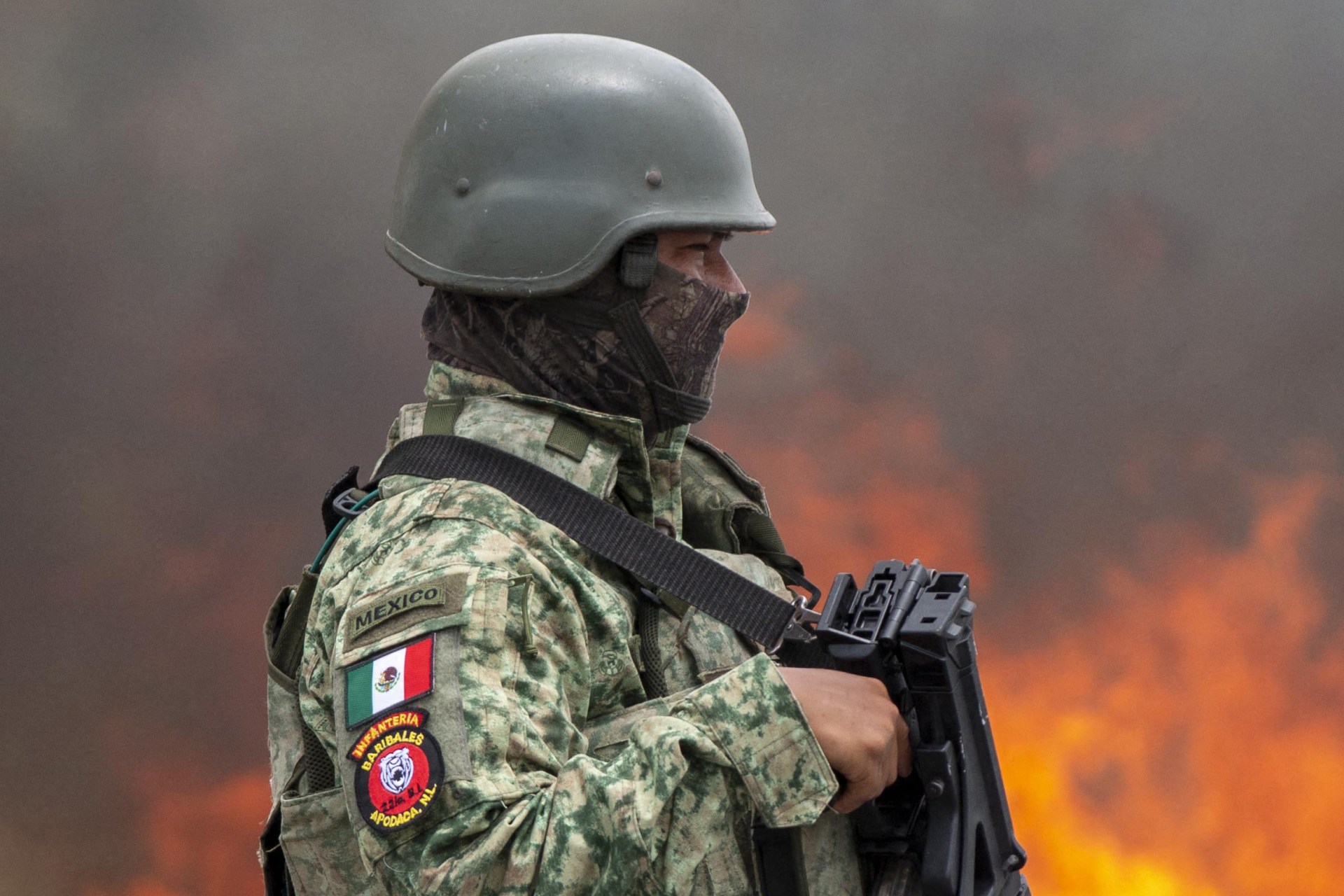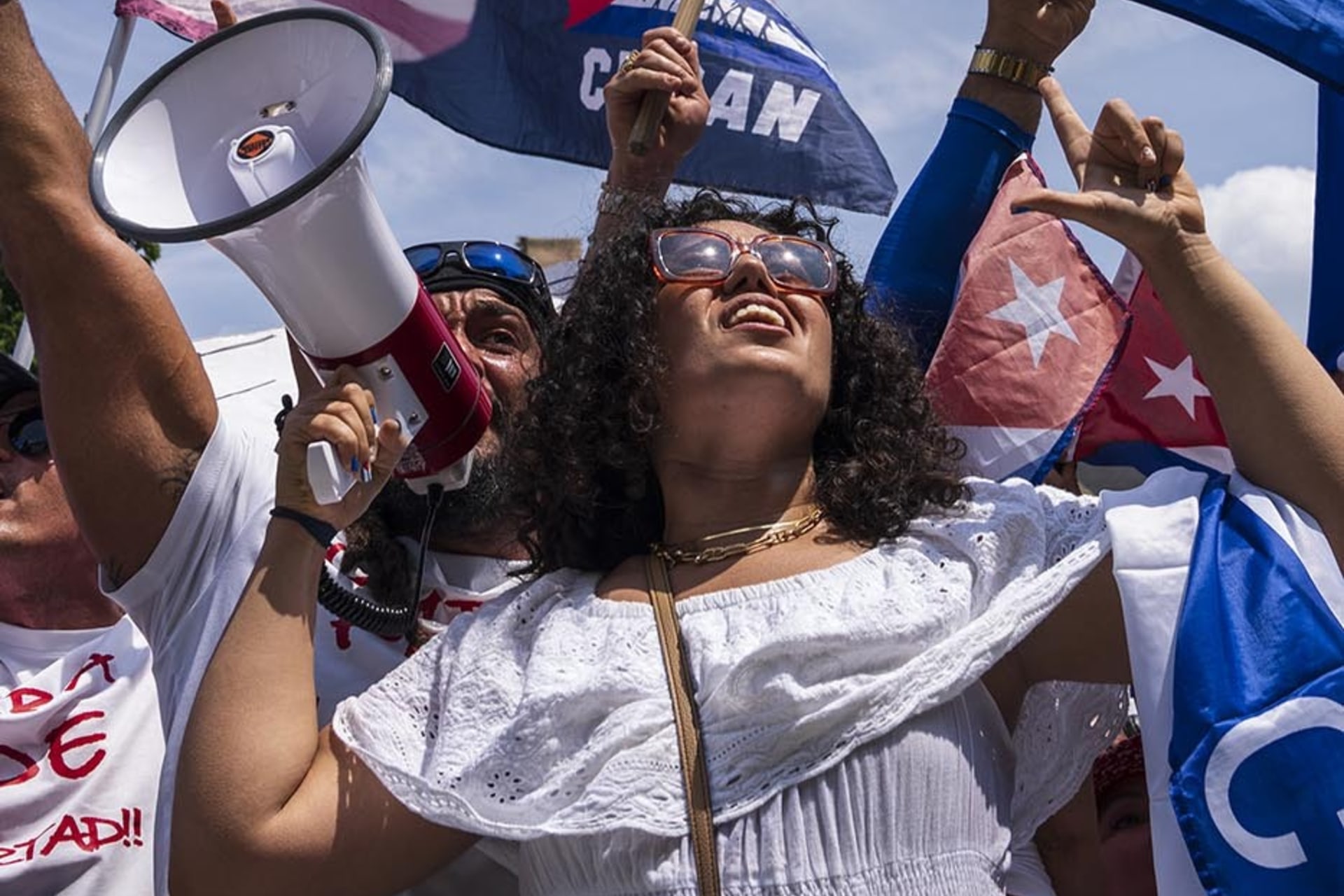Fatah al-Islam
Published
Updated
An overview of the Fatah al-Islam terrorist group.
This publication is now archived.
What is Fatah al-Islam?
Fatah al-Islam is a militant Sunni Islamist group said to have Lebanese, Syrian, and Palestinian members among its ranks. Estimates of its size vary: Reuters reports that the group began with two hundred members yet militants from other Palestinian groups have since joined. It is also reported to have ties to al-Qaeda. Based in Lebanon, the group quickly gained notoriety in May 2007 after violent clashes between its members and Lebanese security forces left dozens of people dead. Many in Lebanon view Fatah al-Islam as a fringe group with no popular backing. As Fatah al-Islam drew the Lebanese Army into a protracted conflict, these Lebanese complained that the country had been hijacked by extremists. CFR Senior Fellow Steven Simon says that while Fatah al-Islam may be a marginal organization, many people in the region sympathize with the group’s complaints about the plight of the Palestinian people.
How was Fatah al-Islam formed?
Fatah al-Islam emerged in November 2006 when it split from Fatah al-Intifada (Fatah Uprising), a Syrian-backed Palestinian group based in Lebanon, which itself was a splinter of Yasir Arafat’s mainstream organization Fatah. Lebanese security officers dispute that it was a real split and allege that Fatah al-Islam is a part of Syrian intelligence security forces. Syria denies any link to Fatah al-Islam.
Which terrorist acts are linked to Fatah al-Islam?
On May 20, 2007, a battle between Fatah al-Islam and Lebanese troops left at least forty-one dead, Lebanon’s worst internal violence since the end of its civil war in 1990. The fighting began when Lebanese security forces investigating a bank robbery raided an apartment north of Tripoli. In response, members of Fatah al-Islam seized control of army posts at the entrance of the Nahr al-Bared refugee camp, which Lebanese army tanks then proceeded to shell. The camp’s electricity, phone lines, and water were cut off. On-and-off fighting continued for weeks, leaving scores dead or wounded.
The Lebanese government also linked Fatah al-Islam to deadly bus bombings in Ain Alaq, Lebanon, on February 13, 2007, which killed three people. Fatah al-Islam has denied any role in the bombings.
CFR Fellow Steven A. Cook says this group’s “actions could further destabilize the [Lebanese Prime Minister Fouad] Siniora government, lead to broader clashes between different ethnic and sectarian groups, and stir up further trouble within the Palestinian refugee camps, which could all provide a means for Syria to further its own ambition of reestablishing hegemony in Lebanon.”
Who is Fatah al-Islam’s leader?
 Fatah al-Islam is led by Shaker Abssi, a notorious Palestinian militant who is said to be linked to the former leader of al-Qaeda in Iraq, Abu Musab al-Zarqawi, who himself was killed by an American air strike in 2006. Abssi and Zarqawi were both sentenced to death in absentia in Jordan for the 2002 killing of U.S. diplomat Laurence Foley. Abssi was jailed by Syria for three years in 2003, a fact that supporters of Damascus hold up as evidence that Syria has no ties to Fatah al-Islam. Upon his release, Abssi fled to Lebanon, where he maintains a base in Nahr al-Bared.
Fatah al-Islam is led by Shaker Abssi, a notorious Palestinian militant who is said to be linked to the former leader of al-Qaeda in Iraq, Abu Musab al-Zarqawi, who himself was killed by an American air strike in 2006. Abssi and Zarqawi were both sentenced to death in absentia in Jordan for the 2002 killing of U.S. diplomat Laurence Foley. Abssi was jailed by Syria for three years in 2003, a fact that supporters of Damascus hold up as evidence that Syria has no ties to Fatah al-Islam. Upon his release, Abssi fled to Lebanon, where he maintains a base in Nahr al-Bared.
In his first interview with Western reporters, Abssi told the New York Times in March that his group had every right to engage in violence, given that Americans have come to the Middle East and incurred even more violence and destruction against his people.
What does Fatah al-Islam want?
Abssi has identified two primary goals: reforming the Palestinian refugee community in Lebanon according to Islamic sharia law, and opposing Israel. Further, it aims to expel the United States from the Islamic world.
Fatah al-Islam has accused the Lebanese government of trying to pave the way for an offensive against Palestinian refugee camps in Lebanon. The camps are widely seen as a breeding ground for radical Islam, but Beirut continues to adhere to a 1969 UN agreement allowing the camps to remain autonomous, provided they disarm their militias.
Is Fatah al-Islam connected to al-Qaeda?
The affiliation is unclear. Syria claims that Fatah al-Islam is connected with al-Qaeda, while Lebanon says the group was sent by Damascus to destabilize Lebanon and has no ties to al-Qaeda. Michael Young of the Beirut-based Daily Star writes in the Wall Street Journal that “most Lebanese Sunni Islamists are not linked to al-Qaeda.” Abssi says his group has no organizational or logistical links to al-Qaeda but subscribes to Osama bin Laden’s ideology of war against non-Muslims—specifically the West—and its goal of replacing the governments of Muslim countries with fundamentalist Islamic regimes. However, following Fatah al-Islam’s initial clashes with the Lebanese army, al-Qaeda leaders called on Muslims to support the group.t
Colophon
Staff Writers
- Rebecca Bloom





